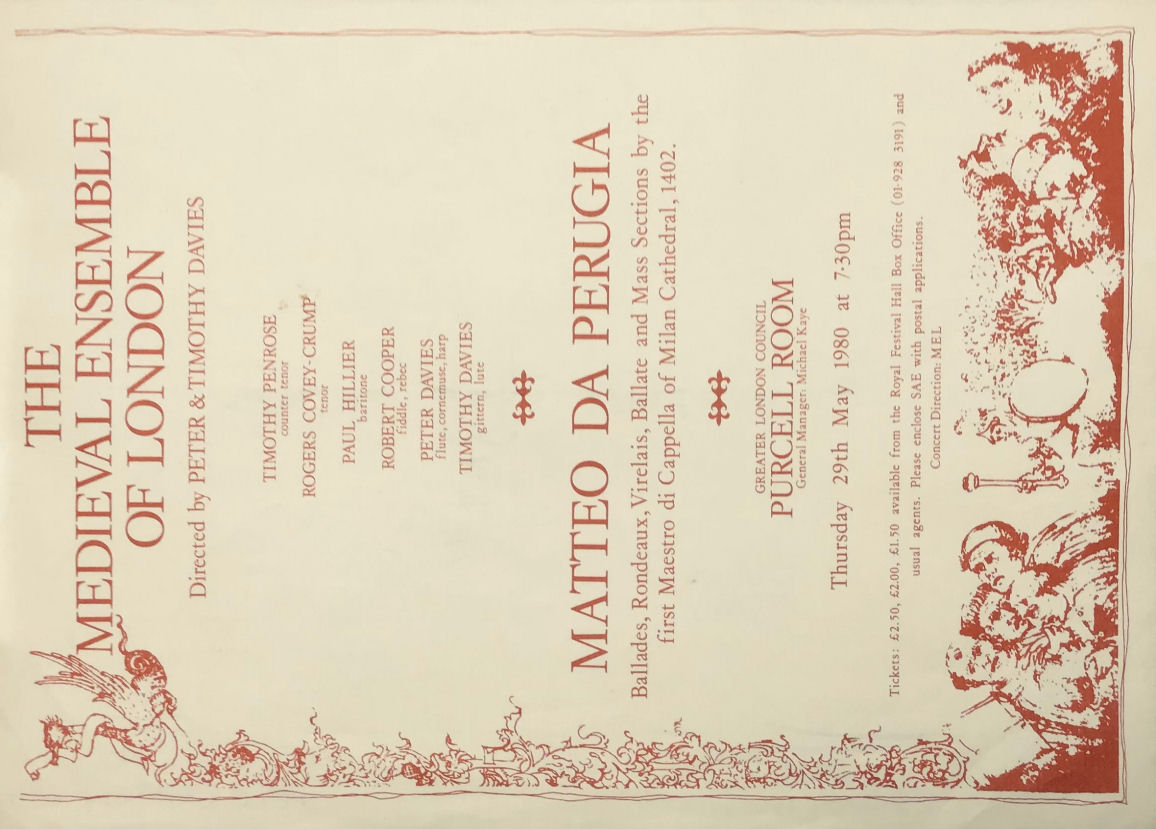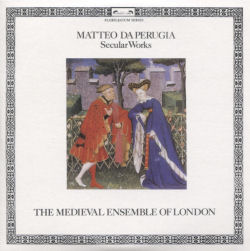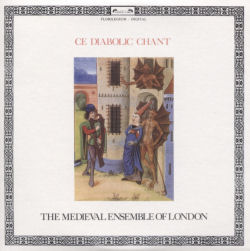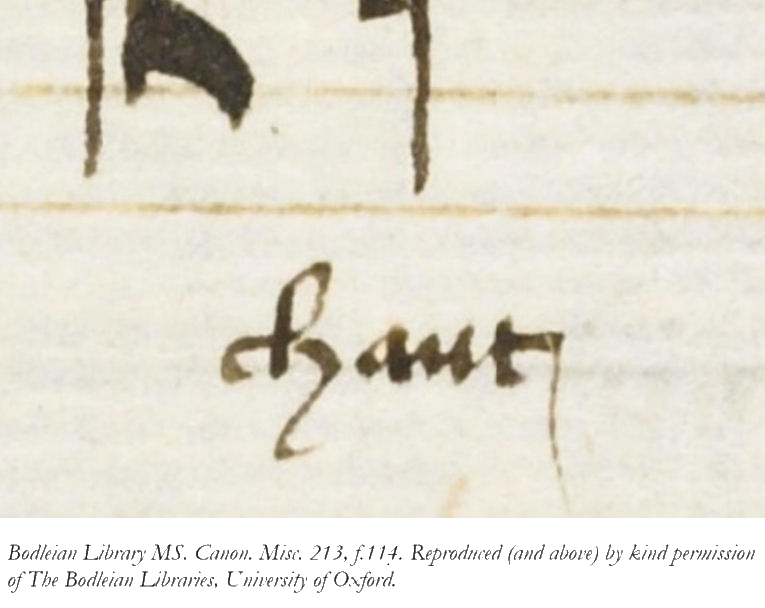of London
The Medieval Ensemble of London was created to perform the extravagantly virtuosic songs that arose in the years between the death of Guillaume de Machaut (1377) and the emergence of Guillaume Du Fay (1420s). This music, with all its challenges, formed the core repertoire of the Ensemble and its performances attracted widespread critical acclaim.

The championship by the Medieval Ensemble of London of the music of Matteo da Perugia in recent years is one of the more remarkable feats of the early music revival, remarkable because of the obscurity of the composer and the success of the enterprise.
Music & Musicians, August 1980
Thanks to this excellent ensemble's debut disc, it is now possible to hear that Matteo's secular music is both wide-ranging in technique and of high quality. Robust yet expressive singing is enhanced by unfailingly appropriate instrumentation. An outstanding issue.
Classical Music, May 1980
The Ensemble's debut recording with the Decca Florilegium L'Oiseau Lyre label was a disc dedicated to the works of the Italian composer Matteo da Perugia.

This is an issue of some importance within the history of early music on record, I think. It marks the record debut of The Medieval Ensemble of London, directed by brothers Peter and Timothy Davies, whose approach to the sound of medieval music represents perhaps the most startling development in British early music ... It is a superb record, sensitively done throughout, and beautifully calculated to bring out the true qualities of Matteo's music.
Gramophone, April 1980
The Ensemble's fourth project with the Label (having, meanwhile, recorded the entire secular music of both Du Fay and Ockeghem) was a curation of French Ars Subtilior composers. Works by Suzoy, Senleshes, Guido, Olivier, Galiot and anon. The disc is entitled Ce Diabolic Chant, which is a quote from the refrain of the final piece on the disc, the anonymous rondeau Se j'ay perdu ma part. The refrain runs:

Se j'ay perdu ma part,
Ce n'est pas pour mon mal ne faut
Mais est pour ce diabolic chant
Qu'en cest pais a mis sa part.
(If I have lost all that which was my own
It is not because of any wrong on my part
But it is because of this devilish song
Which holds sway in this land.)
Of course the term 'ars subtilior' (or, indeed, 'mannerist' or 'avant guard') was unknown to the group of poets and composers active in that forty year period. Such sobriquets are entirely the invention of 20th century scholars and musicians.

The precise reason for the appearance of a 'school' of composers bent on stretching the limits and pushing the boundaries of vocal and instrumental complexity may well be hidden for ever. But the fact is that it happened, and the music has survived to prove it.
Could it have been provoked by an unprecedented and troubling series of meteorological events, devilish heatwaves, say? Or did one composer pen a song so fiendishly complex that others immediately took up the challenge to emulate or even outdo it?
A chaleur Diabolique or chanson Diabolique? Diabolic chaut, or Diabolic chant? We may never know...

What we do know, however, is that the impeccable scholarship that lead to the publication of the song Se j'ay perdu ma part in modern edition, chose to interpret 'chant' rather than 'chaut' at the end of the penultimate line of the refrain. Thereby providing the perfect title for the disc:
Ce Diabolic Chant.
On the disc it is performed a cappella by three of the very finest singers of this music: Margaret Philpot, Rogers Covey-Crump and Paul Elliott. Also to be found, is a performance of Senleches' virelai La Harpe de melodie, sung by Rogers and Paul with harp accompaniment, which is described by one well-known commentator as, '... a performance unsurpassed'.